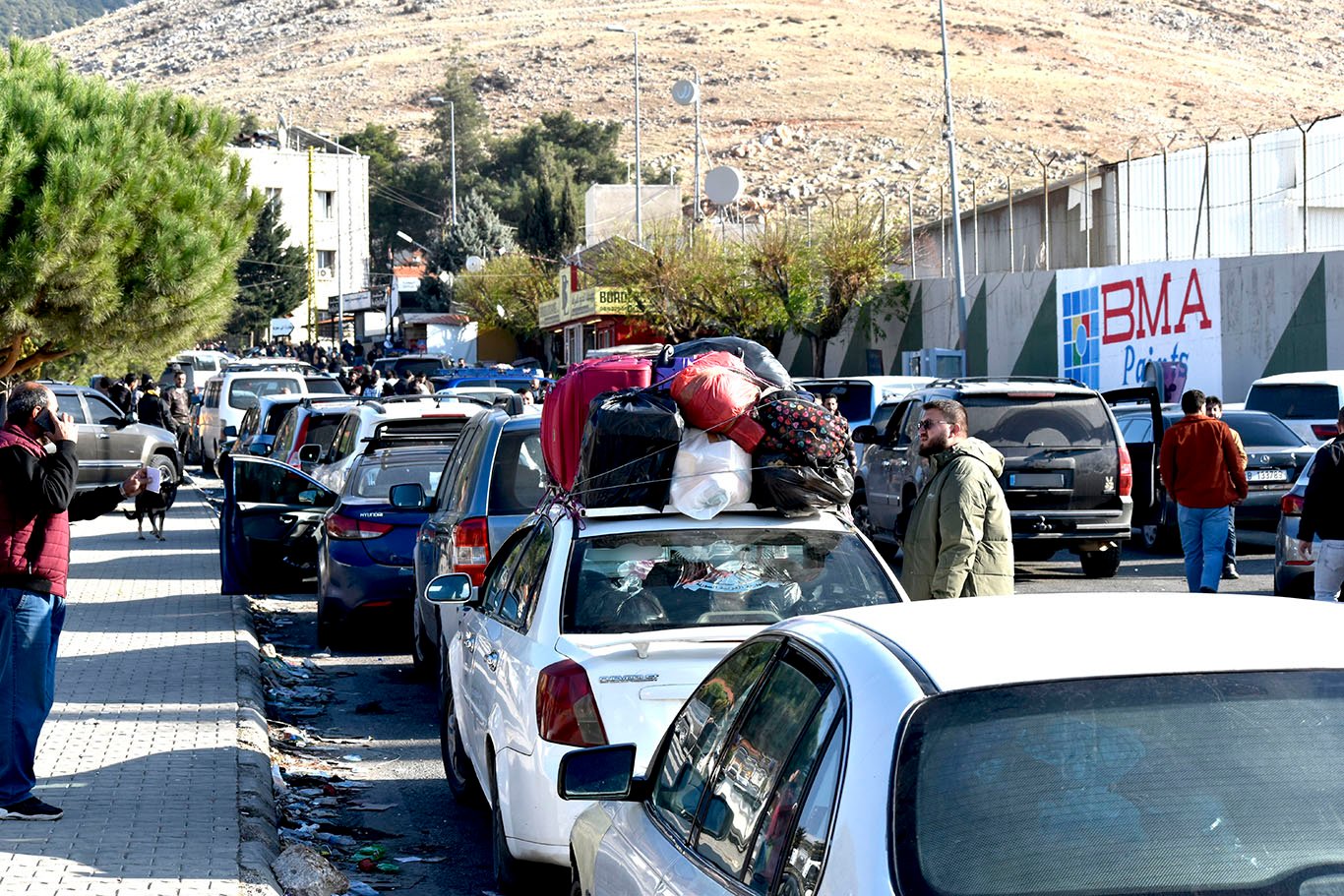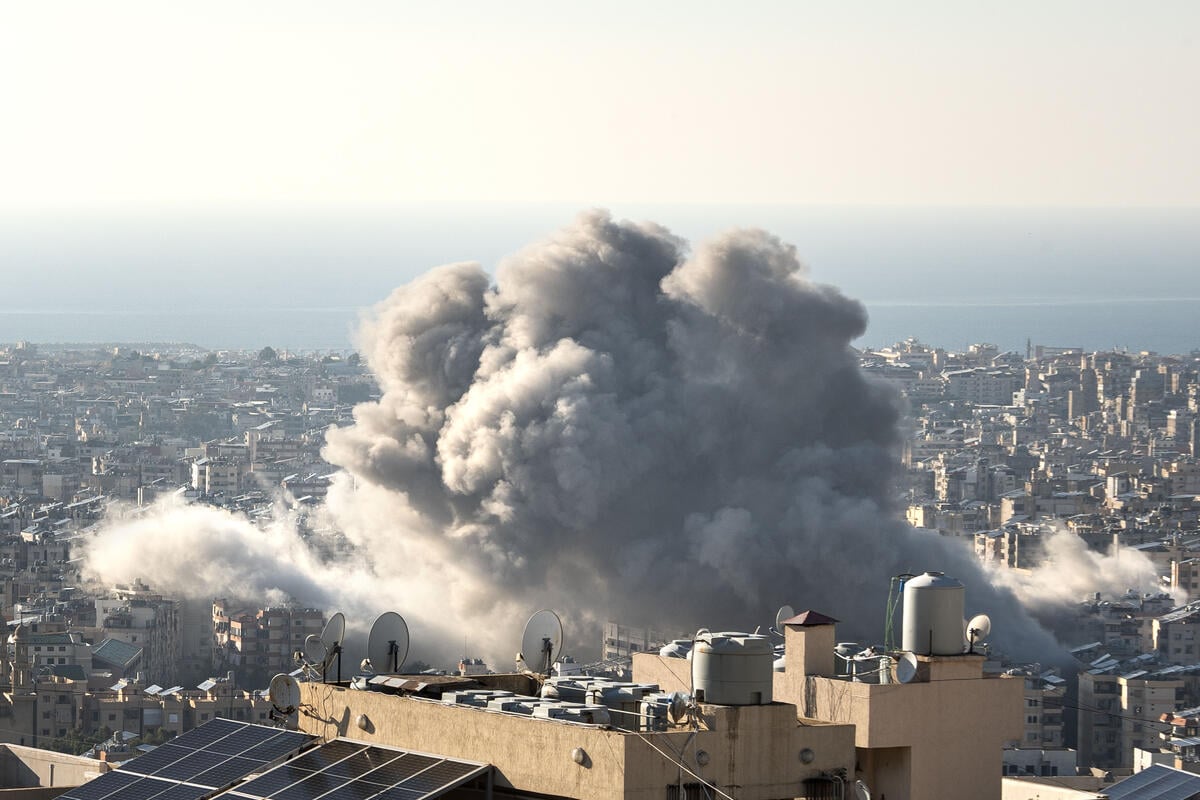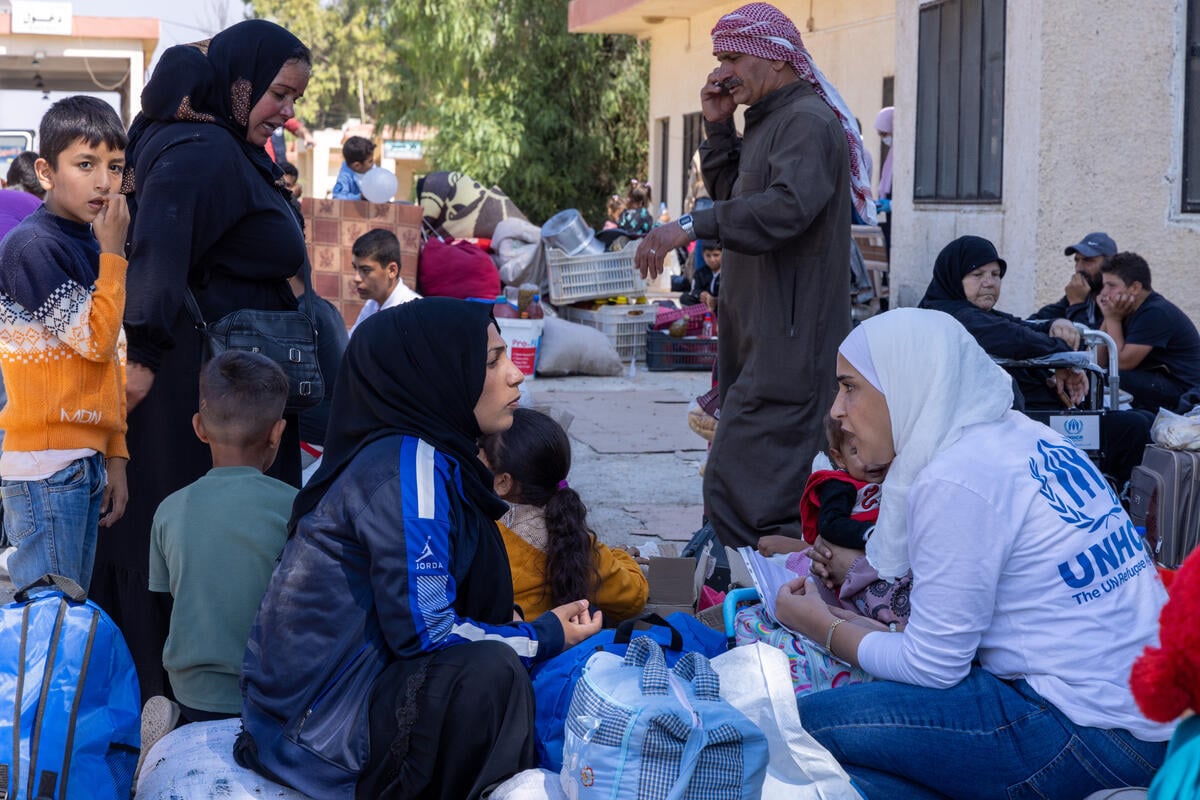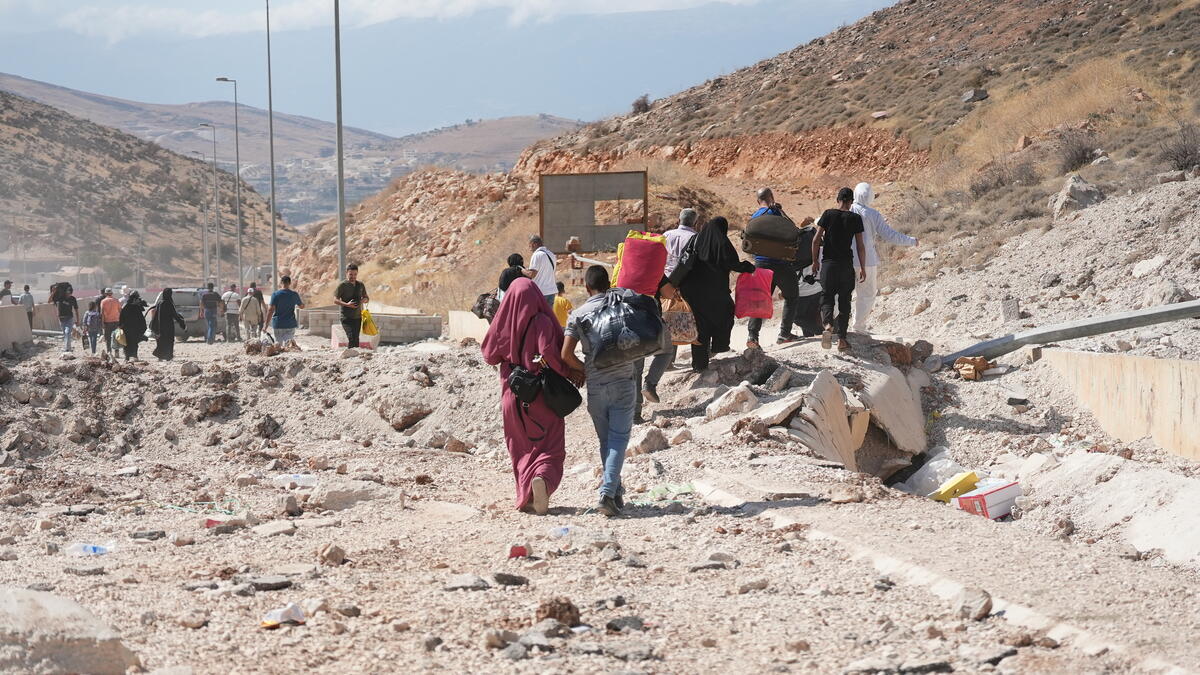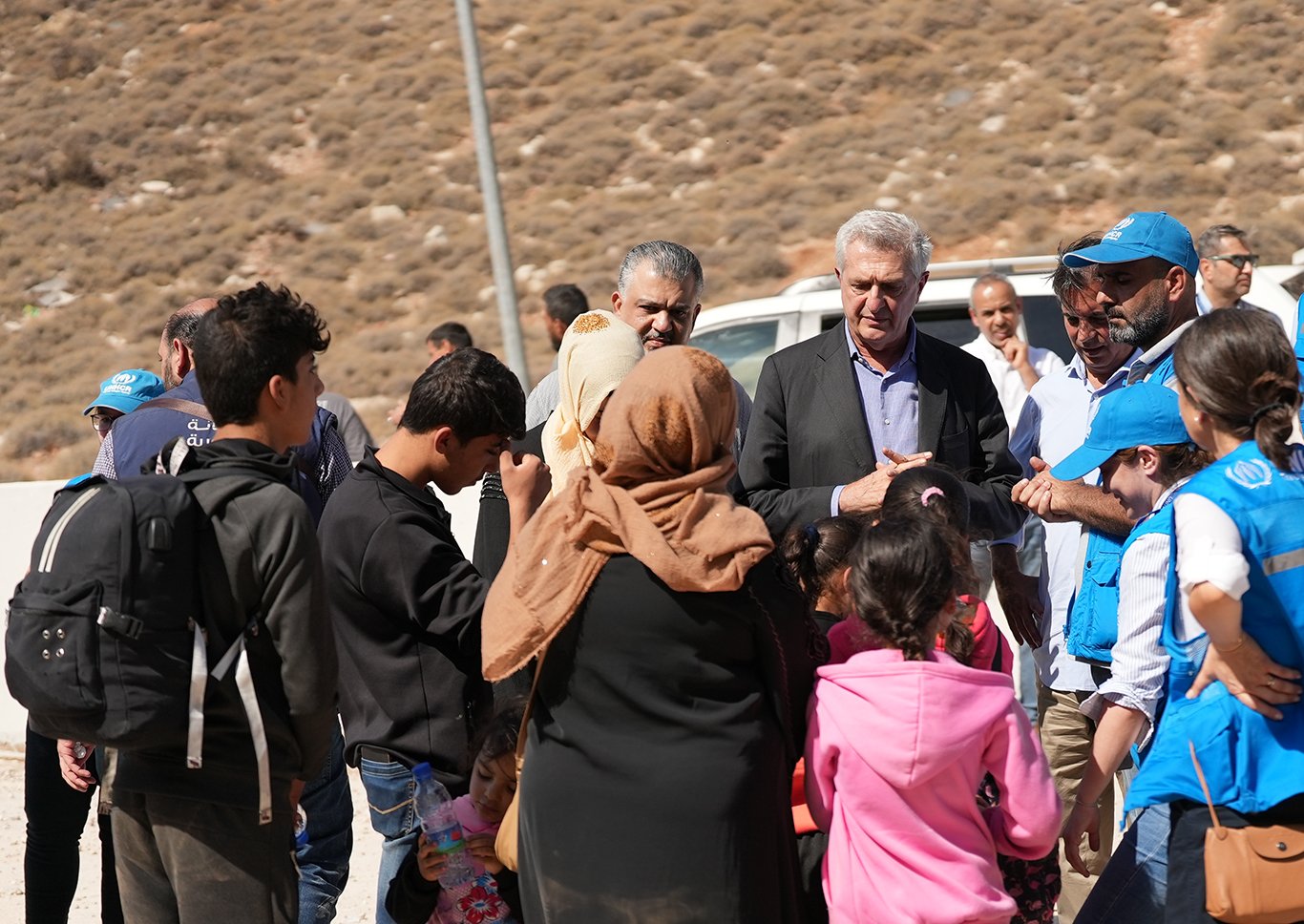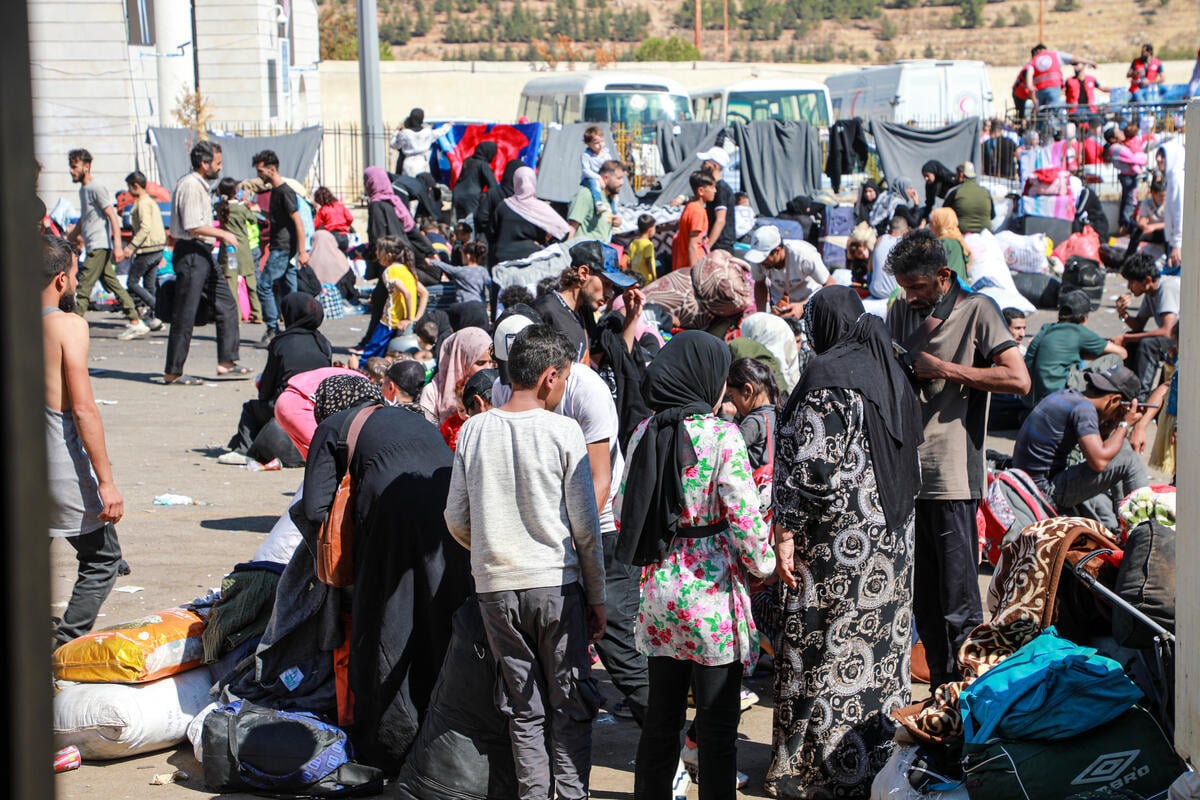Iraq Humanitarian Update No. 2
Iraq Humanitarian Update No. 2
March 31, 2003
No significant refugee arrivals in neighbouring countries
There have been no significant arrivals of refugees reported into any of the countries neighbouring Iraq. UNHCR is continuing its border monitoring and preparations in the Iraq region.
Syria: Hundreds of Iraqis ask UNHCR for temporary protection letter
Hundreds of Iraqis have flocked to the UNHCR office in Damascus asking for a letter offering them temporary protection status. Since Sunday, UNHCR has issued more than 1,400 such documents to Iraqi nationals. Those coming to UNHCR's office are believed to be Iraqis who had left their country prior to the current conflict but who now decided to have their status in Syria formalized because of the war.
None of the Iraqis approaching the UNHCR office so far have asked for food or accommodation. All appear to be living with family or other relatives in Damascus or nearby towns; no one has requested to be transferred to Al Hawl camp. UNHCR is looking into possible vulnerable individuals, such as elderly or handicapped persons, to see if they need any specific assistance.
The document which the Iraqis receive states that UNHCR deems them to be in need of temporary protection which means that they cannot be sent back to Iraq until the country has become safe to return to.
Normally, the UNHCR Damascus office receives only 40 to 50 Iraqis on a daily basis. Last Sunday, 23 March, the number shot up to 150 persons. Yesterday, more than 750 Iraqis came to the office, and today the office received over 900.
Meanwhile, no new refugee arrivals are reported in the border areas. UNHCR has dispatched a field team to Dayr Az Zawr, from where they will monitor the Abu Kamal border. Tomorrow, staff will move onwards to Al Hasakah, which will be UNHCR's base of operations in eastern Syria. From there, staff will monitor the Al Yarubiyeh and Faysh Khabur border crossings in the far north-east of the country.
Turkey: Relief stocks grow, border monitoring faces difficulties
Stocks of relief supplies continue to build up in the UNHCR regional warehouse in the port city of Iskenderun, in southern Turkey. As of today, the warehouse contains 10,800 tents (sufficient for up to 54,000 people); 95,500 blankets (for around 48,000 people); 58,000 mattresses (for up to 96,000 people); 20,800 stoves; as well as substantial stocks of plastic sheeting, lanterns and jerry cans. A consignment of 360,000 sanitary napkins is being transferred inland to another UNHCR warehouse in Gaziantep. Some additional stocks, including 1,000 tents, 15,000 blankets, 1,000 mattresses and 2,000 stoves, are currently being transferred from the Iskenderun warehouse to bolster the UNHCR stocks in Syria. The warehouse is serving the needs in both countries.
UNHCR mobile monitoring teams in Turkey continue to face serious difficulties. In the remote and mountainous far south-east of the country, where two teams are now located, bad road conditions continue to hamper operations. One team, which was intending to head south from Hakkari to the border town of Cukurca on Monday, had to abandon the attempt after receiving information that the road between the two towns was blocked by 25 separate avalanches and landslides, making travel impossible. There is currently no other way to access Cukurca, one of the main arrival points for refugees during the 1991 Iraq crisis. So instead, both teams are today heading for Semdinli, close to the point where the borders of Iraq, Iran and Turkey meet. The teams report that they are receiving good cooperation from the local authorities.
The third monitoring team, operating out of UNHCR's main southern Turkish base in Silopi, continues to encounter problems receiving the necessary clearances from the authorities, and has effectively not had proper access to borders areas to the east and west of Silopi for the past six days. On Monday the team was scheduled to travel to Uludere, another major crossing in 1991. However, by midday no clearance had been received, and the mission was abandoned.
Jordan: More tents arrive
Two Boeing 747 cargo aircraft piloted by crews from Japan's Self-Defense Air Force arrived at Jordan's Queen Alia International airport today with 160 ten-person tents donated to UNHCR by the government of Japan. UNHCR plans to send part of the Japanese contribution to its forward stockpile in eastern Jordan. The remaining tents will be stored outside Amman in UNHCR's regional stockpile, from where they can be distributed to border sites in the region to shelter any refugees.
Iran: Preparations continue
Preparations continue on four camp sites in Iran's western provinces of Kermanshah, Khuzestan and Ilam. These four camps will have an initial capacity for 60,000 refugees. Six other camp sites have been cleared of land mines and levelled and could be opened if needed. UNHCR has also stockpiled blankets, tents, water containers, kitchen sets, mattresses and supplementary foods in its warehouses in the key western Iranian cities of Ahwaz and Kermanshah.
Meanwhile, UNHCR has deployed mobile teams to look into persistent reports of displaced Iraqis massing along the border with Iran, but Iranian authorities have said that there have been no refugee attempts to cross the frontier into Iran - an area which is littered with land mines and is heavily militarized. Travel by civilians to these areas is restricted and UNHCR receives permission to visit the border to check out reported presence of refugees.
Funding update
UNHCR has so far received more than $31.6 million from donor countries.


